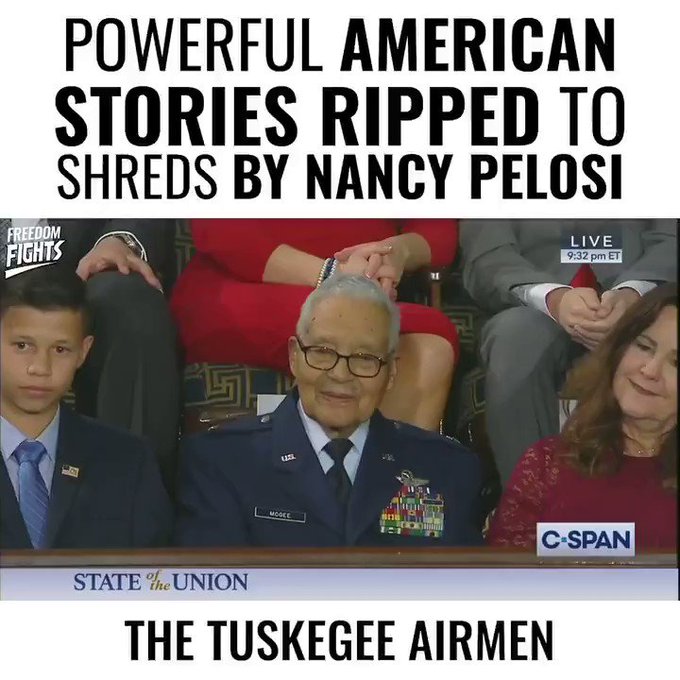A growing number of Democratic lawmakers are calling for Twitter and Facebook to pull down an edited video of House Speaker Nancy Pelosi (D-Calif.) that was posted by President Trump on Thursday, reigniting a battle over how much responsibility social media platforms should assume over viral footage that could mislead viewers.
The back-and-forth over the Pelosi video is opening up fresh wounds, as Democrats are still incensed by Twitter and Facebook's previous decision to leave up a different manipulatively edited video of Pelosi that went viral last year.
Pelosi's deputy chief of staff, Drew Hammill, on Friday said the "latest fake video of Speaker Pelosi is deliberately designed to mislead and lie to the American people."
Hey @Twitter, this video is clearly edited in a way that’s intended to mislead viewers. You should take it down. twitter.com/realdonaldtrum…
781 people are talking about this
"The American people know that the President has no qualms about lying to them — but it is a shame to see Twitter and Facebook, sources of news for millions, do the same," Hammill said on Friday. "Every day that these platforms refuse to take it down is another reminder that they care more about their shareholders’ interests than the public’s interests.”
Hammill said Pelosi's office has asked both Twitter and Facebook to take down the video.
The five-minute video, which was pinned to the top of Trump's Twitter feed on Friday, shows Pelosi ripping up Trump's State of the Union speech as he reunites a military family, announces a scholarship award for a young girl and awards the Presidential Medal of Freedom to conservative commentator Rush Limbaugh.
"Powerful American stories ripped to shreds by Nancy Pelosi," reads the text at the top of the video.
Pelosi did rip up Trump's State of the Union address, but it was after he was done giving his remarks on Tuesday night. She sat solemnly through the theatrical speech as the president doled out the awards and gifts. She publicly ripped up a copy of his remarks just after he had finished speaking.
Republicans throughout the week have used Pelosi's decision to rip up the speech to fuel a political war, even attempting to force through a GOP-backed resolution to "strongly" condemn Pelosi for ripping up the address. Trump himself accused Pelosi of criminal activity, falsely alleging it's illegal to rip-up an official government document.
As of Friday afternoon, the same video from Trump's official account, which boasts over 72 million followers, had received over 145,000 likes and more than 45,000 retweets.
"This video is clearly another deceptive effort by @realDonaldTrump to mislead and manipulate the American people," tweeted Rep. Veronica Escobar (D-Texas). "Hey@jack [Twitter CEO Jack Dorsey], show your commitment to cut down on the misinformation corroding our nation and take down this fake video."
And on Facebook, where Trump has more than 27 million followers, the same video garnered over 85,000 reactions and more than 10,000 comments — many of which appeared to indicate users believed Pelosi ripped up the speech during Trump's speech.
Facebook has said the video does not violate any of its rules.
Most Democratic lawmakers focused their ire on Twitter, however, pointing out that Twitter last week unveiled a new policy against manipulated footage that has the potential to confuse viewers.
Twitter's new policy doesn't go into effect until March, and the company said it would not answer hypotheticals about if the video would violate the new rules.
"Hey @Twitter, this video is clearly edited in a way that’s intended to mislead viewers," tweeted Rep. David Cicilline (D-R.I.), who runs House Democrats' messaging arm. "You should take it down."
Rep. Ro Khanna (D-Calif.), who represents Silicon Valley and is a close Pelosi ally, tweeted, ".@Twitter must take this misleading video about @SpeakerPelosi down now. Social media platforms are a place where people come for news & information. They need to have certain standards."
A controversial video of Pelosi, which was edited to make it appear as though she was slurring her words, sparked a larger reckoning over manipulated footage online when it went viral across most of the top social media platforms last May.
Since then, Facebook and Twitter have both announced new policies to curb misleading or fabricated videos — though Facebook's is much more narrowly tailored to curb images and videos that have been technically manipulated using artificial intelligence.
Some critics have raised concerns that broad policies against edited footage could wind up chilling free speech and potentially sweeping up normal political attack ads.







No comments:
Post a Comment